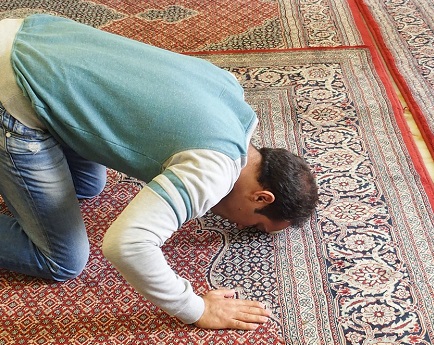A dissertation analyses how young Muslims reconcile their religious duties with their day-to-day life in Spain
A dissertation analyses how young Muslims reconcile their religious duties with their day-to-day life in Spain
Coinciding with the start of Ramadan, a doctoral thesis presented in March at Pompeu Fabra University studies the Muslim minorities and their religious practices in secular contexts in Spain, with the cities of Barcelona and Madrid as case studies.
 The research, which highlights a trend towards individualization when addressing religious practices, especially focusing on the second generation, seeks to answer the question “How do young Muslims reconcile their religious duties with their day-to-day life in contemporary Spanish society?”
The research, which highlights a trend towards individualization when addressing religious practices, especially focusing on the second generation, seeks to answer the question “How do young Muslims reconcile their religious duties with their day-to-day life in contemporary Spanish society?”
The thesis, entitled Individualization of Muslim religious practices: contextual creativity of second-generation Moroccans in Spain, was written by Mohammed Hicham El-Bachouti, under the supervision of professor Ricard Zapata Barrero, director of the GRITIM-UPF, presented at the Department of Political and Social Sciences.
The study begins with the formulation of a “theory of individualization”, and the analysis of the supporting literature. Then, the author holds several interviews and contextualizes this individualization in Europe, based on the testimony of second-generation Moroccans in Spain.
According to the author, individualisation is not so much a product of the generational divide, as is commonly purported, but from what he calls “contextual creativity”, a limited set of religious choices that young people take to accommodate themselves to the requirements of religion and the context in which they live. These options do not translate into individual secularization, but into the expression of limitations, instead of freedoms.
Finally, to invite the interviewees to share their experiences of individualization and their trajectories, and capture how this reconciliation between religious duties and everyday life takes place, the project invokes two specific practices: daily prayers and social interactions (school, work, community).
The author chose these two areas because they are an example of the continuous daily struggle for those who try at the same time to accommodate religious rights and social interferences.
Thesis number 27,000 published on the TDX repository
This is thesis number 27,000 published on the TDX (UPF currently has 1,604 theses), a cooperative repository that, in digital format, contains digital doctoral theses read at the universities of Catalonia, and allows access to more than 92,000 theses from other universities in Spain.
According to El-Bachouti, “the TDX has given me the opportunity to take advantage of the wealth of knowledge that is produced without the constraints of other traditional ways of doing research, as well as building and innovating efficiently”.
